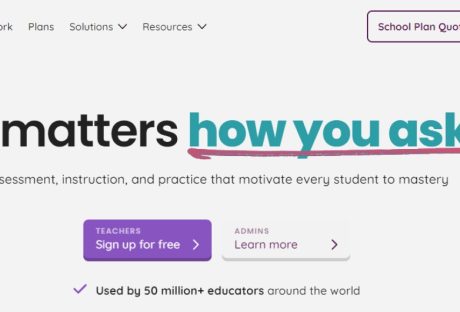JEE Main is the largest engineering entrance exam of the country. Due to sheer competition in the exam, it is not easy to crack it. However, there are many things candidates do or can do to get an edge over others. One of these things is to solve past year question papers for Joint entrance Examination which has become an important, rather essential part of preparation. Solving previous year papers can be beneficial in the following ways:
Best Guidance about Important Topics
The biggest question in the mind of JEE aspirants is that which are the most important topics. Well, you can have a lot of teachers and seniors telling you important topics and they can give accurate guidance as well. But isn’t it better to know these things directly from the papers? If you scan through the papers of the last 15 years, you will never need to ask anyone about the important topics for the exam.
Therefore, while you are looking to start your preparation, just go through the past year papers once. Just note down the number of questions coming from each topic (don’t solve those papers for now), and there you go. You will have a self-made list of the weightiest topics for the exam.
Read More: Free Student Guide To Help You Achieve Exam Success
Perfect Source of Practice
There are numerous sources from which you can practice questions for the exam such as books, mocks, coaching material and whatnot, but actually, the best source of practice will always be the past year papers. See it this way, on one side you have some random questions from all the topics, and on the other hand, you have questions that have actually appeared in the paper, and you know which one is better.
Thus, previous year papers become the best source of practice. But we suggest that you do not start solving them right at the start of your preparation. Practicing with these after completing your entire syllabus will be a better option.
Read More: How To Crack Civil Service Exam In One Attempt
These Boost your Confidence
Most people join coaching for JEE Main but coaching institutes generally provide study material that is way beyond the level of the exam as JEE is about concepts and not about all the toughest science problems of the world.
Due to such high-level questions, many candidates tend to lose the confidence and past year papers can be the savior for such students. The questions asked in the actual exam are not as tough as those witnessed in mocks or coaching material. Thus, relevant questions take your confidence to another level, which is a very important factor of preparation.
These are the Best Mocks, Ever!
Taking mock tests have become an essential part of preparation these days. Many students enroll for national level mock tests to practice and know the level of their preparation. But there is always a problem with mocks regarding the relevance of their level of difficulty. Some candidates feel that the mock tests they enrolled for were not up to the mark, and some say it was above the required level.
But what if we tell you about the best and the most relevant mock test series. Yes, the past year papers are undoubtedly the best mocks you can appear for. If you solve 10 papers as mocks, you would have appeared for the exam 10 times before the actual test. Isn’t it great? So use past year papers as mocks and you have the optimum level of practice you need.
The ‘Repeated Questions’ Scenario
Although it is not the ideal way to think, many a times questions from past year papers get repeated in the exam so if you go through these previous year papers, you will be able to solve such questions quickly.
Although such repetition is not very frequent, even if you get just 1 or 2 questions repeated, isn’t it a great bonus of 4-8 marks. So why miss those 8 marks?
How to Make the Best Use of Past Years’ Papers?
Well, solving past years papers is always of great benefit, but you can maximize the benefit by applying some simple tips. Here is what you can do to make the best use of these papers-
First: At the beginning of your preparation, scan through the papers of at least past 15 years. Note the important topics here.
Second: After completing your syllabus, these papers should be your first preference for practice.
Third: If you see any type of question(s) getting repeated, note it down separately, go through it during your final revision.
Fourth: You can also prepare some strategies by referring to these papers.
Fifth: Solving every question is not necessary (until of course, you want to score 330 or more). Look out for questions which are the most doable ones.
We hope you have understood the importance of past year papers from above-mentioned information. So go through these and nail JEE Main 2018. Good Luck!
Read More:






















